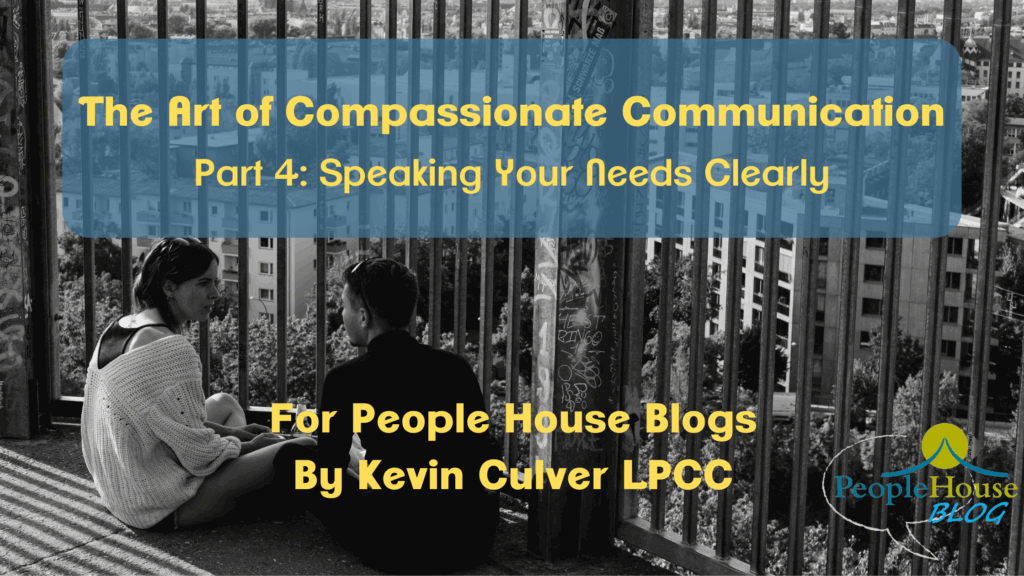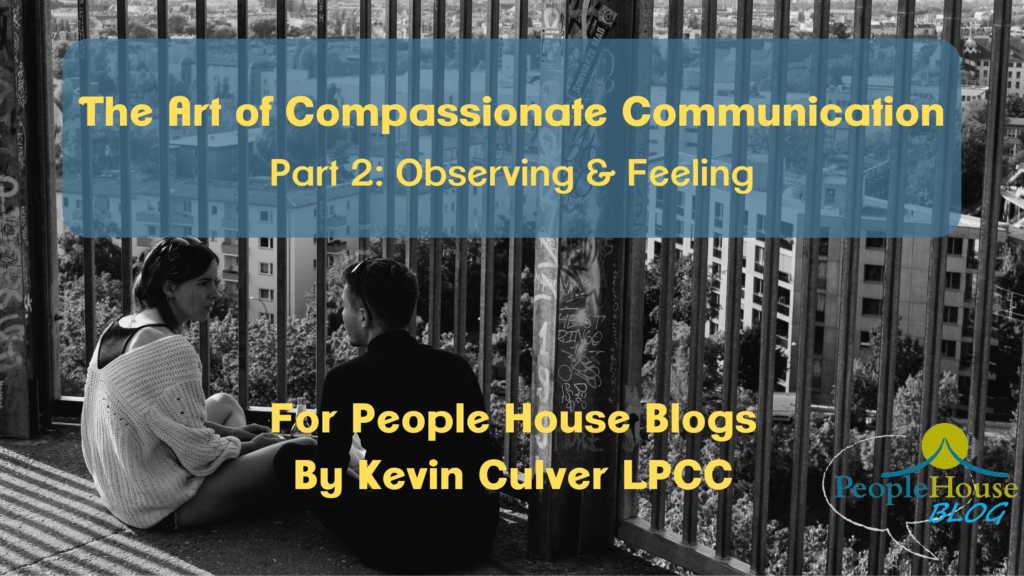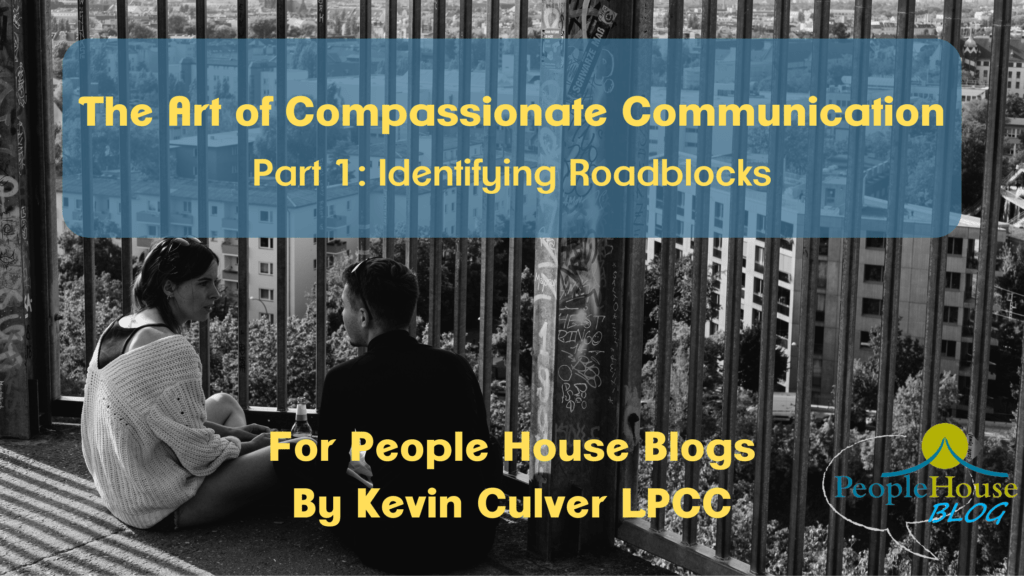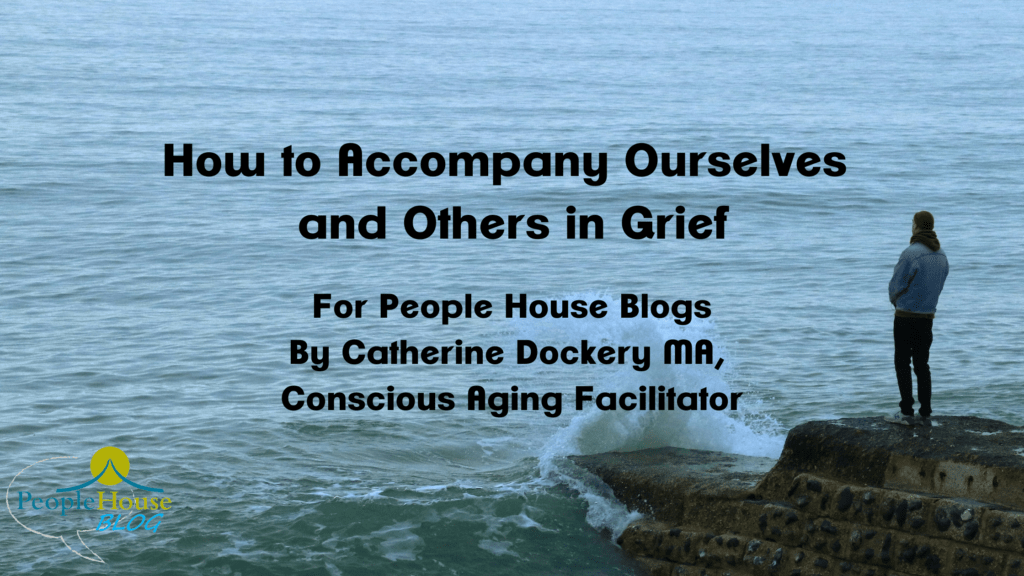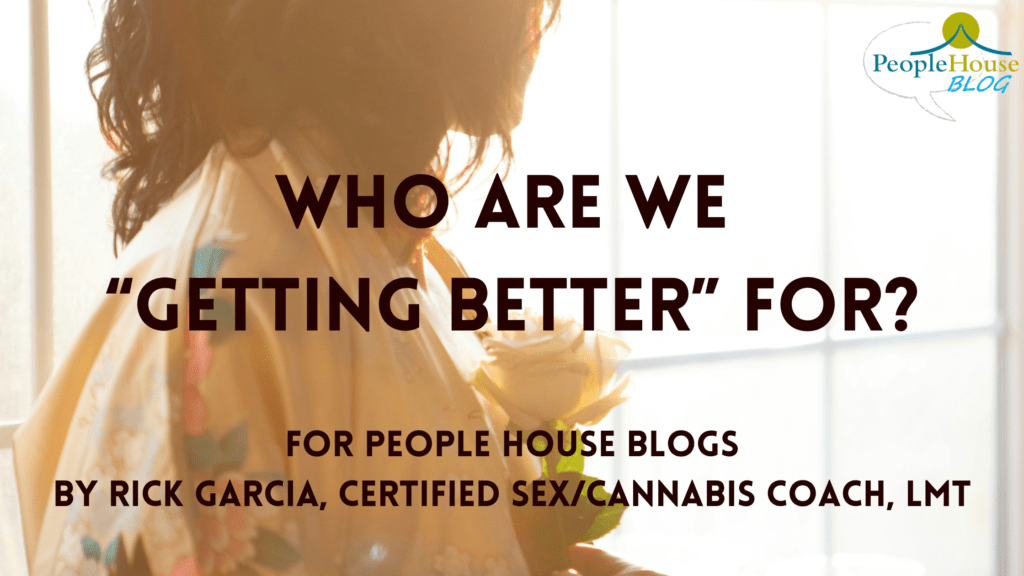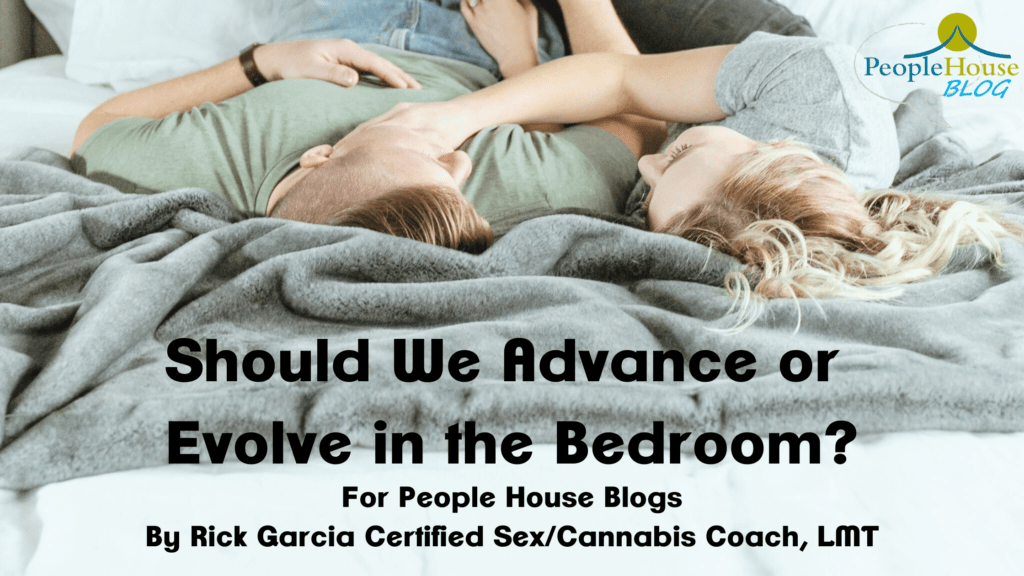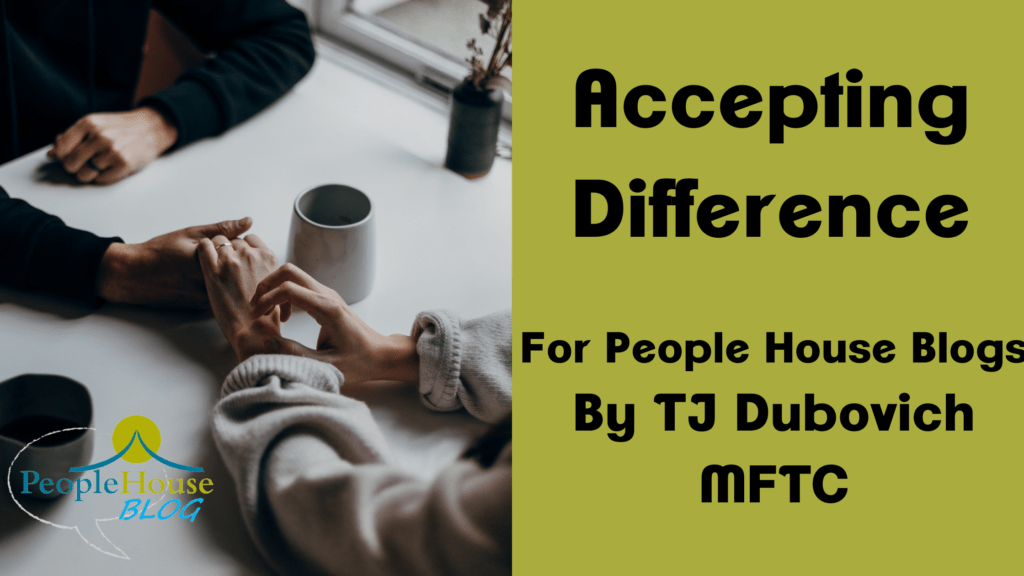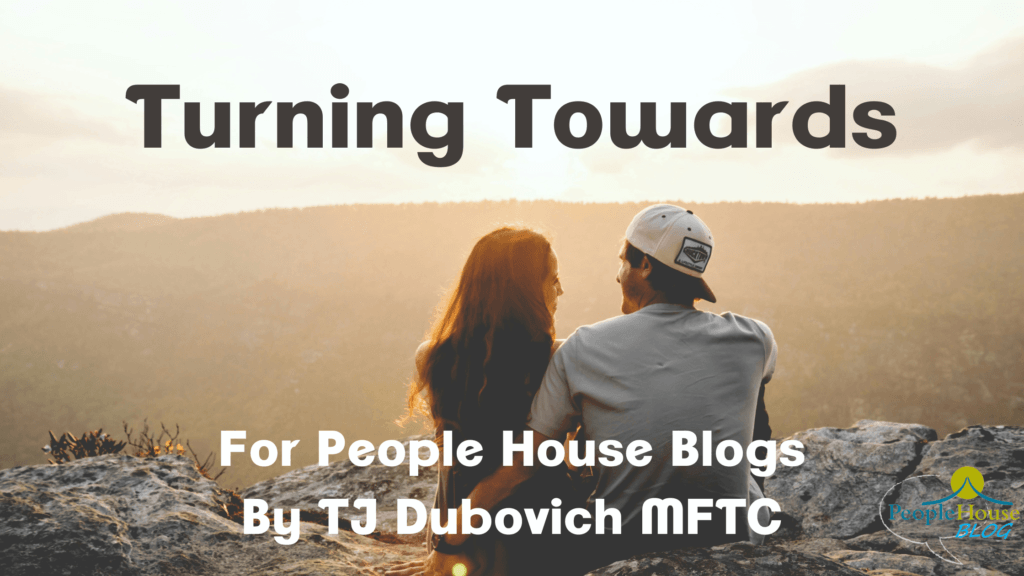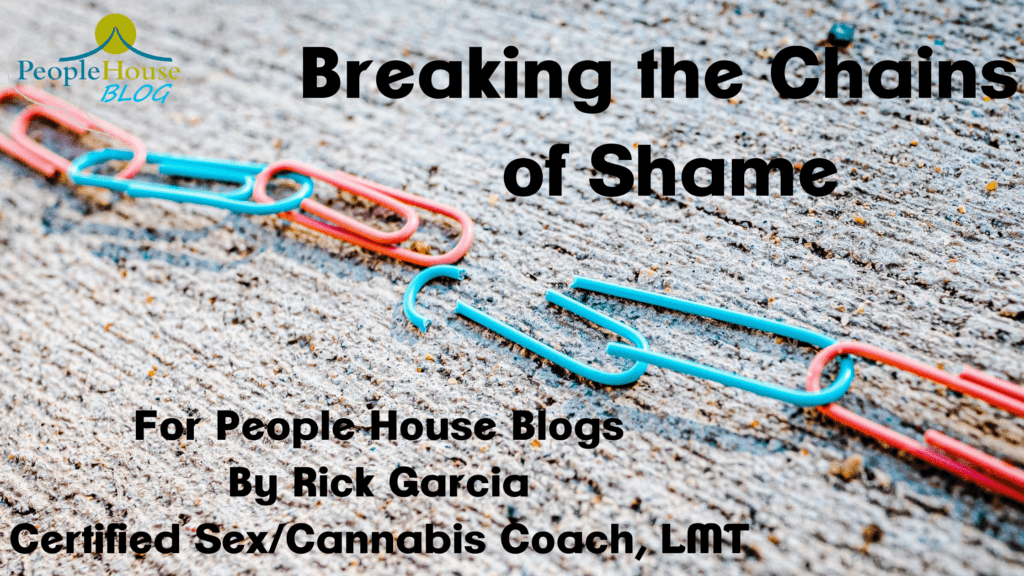Posts Tagged ‘Relationships’
The Art of Compassionate Communication – Part 4: Speaking Your Needs Clearly || By Kevin Culver LPCC
This blog series has examined how to build deeper understanding and connection in relationships using Dr. Marshall Rosenberg’s framework of Nonviolent Communication (NVC). In the last post, we looked at the importance of identifying and expressing our core needs (previous blog link here). In this final blog, we’ll explore the last component of NVC: learning…
Read MoreThe Art of Compassionate Communication – Part 3: Identifying Needs || By Kevin Culver LPCC
This series of blogs is focused on how we can improve communication in our relationships, both professionally and personally, specifically by using Rosenberg’s framework of nonviolent communication (NVC). In the last blog, we identified the importance of objectively observing our experience and circumstances and then connecting it very specifically to how we feel (previous blog…
Read MoreThe Art of Compassionate Communication – Part 2: Observing & Feeling || By Kevin Culver LPCC
This series of blogs is focused on how we can improve communication in our relationships, both professionally and personally, specifically by using Rosenberg’s framework of nonviolent communication (NVC). In the last blog, we identified the roadblocks that often get in the way of understanding and collaboration in our communication – namely judgment, comparison, denial of…
Read MoreThe Art of Compassionate Communication – Part 1: Identifying Roadblocks || By Kevin Culver LPCC
As humans, we all have needs, emotions, and feelings, but we often struggle to express them, especially in the context of relationships. Many never learned how to identify our needs or feelings, much less communicate them to others. And when we try, it often ends up in misunderstanding, disappointment, and hurt, amplifying our feelings of…
Read MoreHow to Accompany Ourselves and Others in Grief || By Catherine Dockery, MA, Conscious Aging Facilitator
Feeling grief was impossible for me most of my life. I grew up in the middle of a very large family, My mom had absolutely no capacity to hold her own grief nor to recognize or welcome mine. I learned really quickly to be strong, to be independent and not too needy. In order to…
Read MoreWho Are We “Getting Better” For? || By Rick Garcia, Certified Sex/Cannabis Coach, LMT
As you read the title of this blog, stop and ponder where your mind went. Was it getting better as a work professional? As a person? As a lover? I find it fascinating that our minds will almost always instinctively link what draws our attention to what drives our intention. Everyone wants to be better…
Read MoreShould We Advance or Evolve in the Bedroom? || By Rick Garcia, Certified Sex/Cannabis Coach, LMT
As a sex coach, I often find amazing metaphors about life in odd places and I find a way to translate them into sexual health. I recently found myself watching a TV show that focused on technology. This show was great and at its core it was a cautionary tale about the dangers of advancing. …
Read MoreAccepting Difference || By By TJ Dubovich MFTC
We all know that our partner is going to have some differences from us. If they didn’t, we would be in a relationship with a clone… and maybe that’s your thing, but I’m guessing most of you want a partner that has differences that compliment or challenge you, creating excitement and nuance within the relationship.…
Read MoreTurning Towards || By TJ Dubovich MFTC
As a marriage and family therapist, I hear couples say things such as “I just don’t want to fight anymore” or “We have been fighting more recently and I’m concerned that means deeper issues in our relationship”. While increased, toxic conflict is not a good sign within a connection, conflict, in general, is neither a…
Read MoreBreaking the Chains of Shame || By Rick Garcia, Certified Sex/Cannabis Coach, LMT
Welcome to another blog installment. Full disclosure, this post will dive into the waters of sexuality, shame and guilt. These concepts are charged, and if you find them triggering, then you have a choice: you can stop reading and come back to this article when you are in a better space, or, if you find…
Read More
